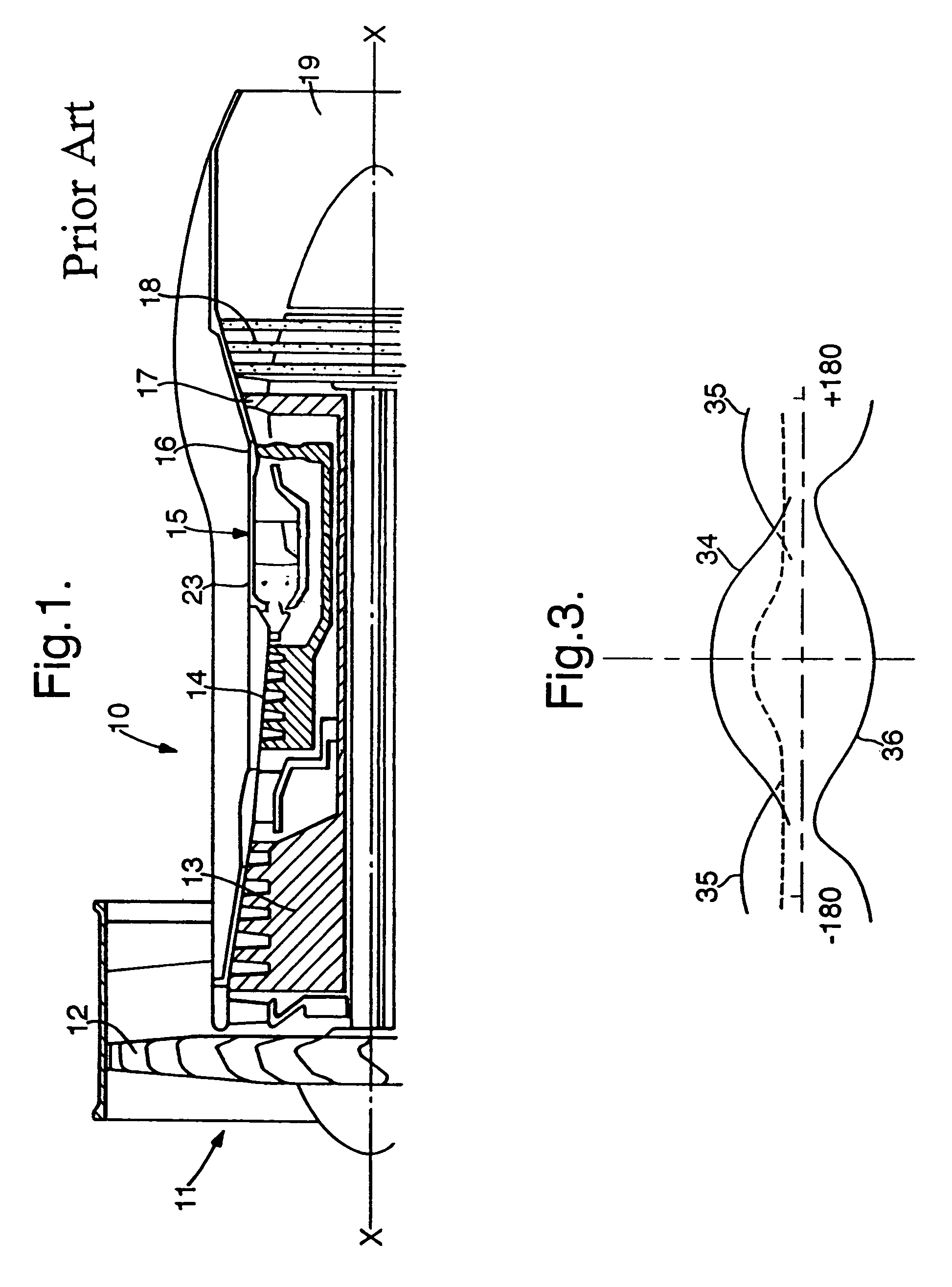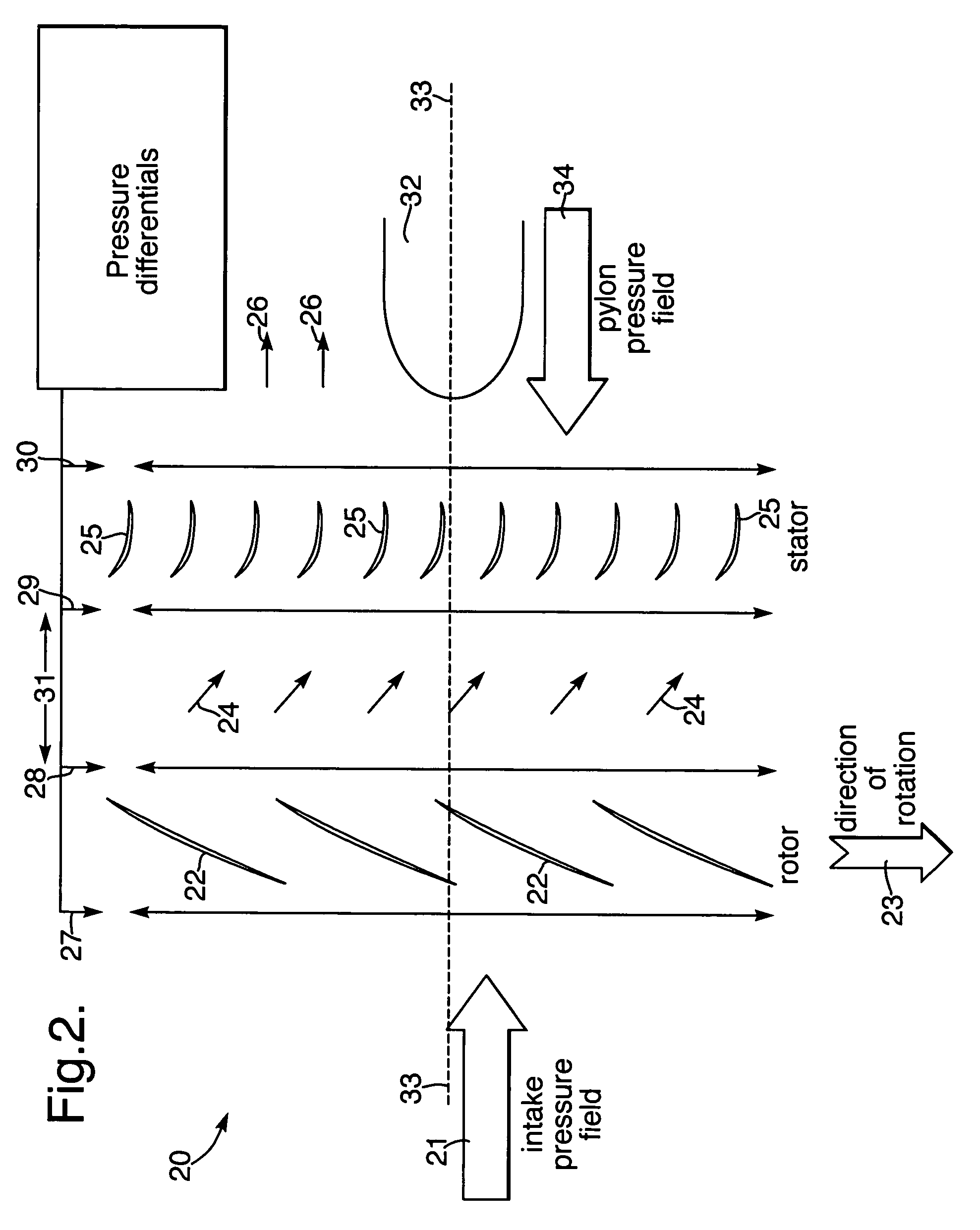Gas turbine engine including stator vanes having variable camber and stagger configurations at different circumferential positions
a technology of stator vanes and gas turbine engines, which is applied in the direction of machines/engines, liquid fuel engines, combustion air/fuel air treatment, etc., can solve the problems of aerodynamic loss, the input effect of the propulsive fan of the gas turbine engine may be further compromised, and the inability to achieve the effect of reducing the aerodynamic loss
- Summary
- Abstract
- Description
- Claims
- Application Information
AI Technical Summary
Benefits of technology
Problems solved by technology
Method used
Image
Examples
Embodiment Construction
[0021]The present invention relates to the design of an air intake for a gas turbine engine. This air intake is a low pressure compression system for an axial flow compressor in the engine. The low pressure compression system comprises the intake to the fan or compressor, the fan or compressor, the outlet guide vanes or stator vanes on the stator and any obstructions such as pylons used to support the engine upon an aircraft wing or struts used to enclose radial drives or other features which cause an upstream variation in pressure for example bleed ducts. As indicated above, there is an associated non-axisymmetric flow to the intake caused usually by droop in the airflow to the intake. It is also understood that non-axisymmetric flow in the low pressure system of a gas turbine engine generates a number of undesirable features. For example, at certain circumferential locations, there are localised regions of high Mach number flow on the stator vanes and localised regions of high sta...
PUM
 Login to View More
Login to View More Abstract
Description
Claims
Application Information
 Login to View More
Login to View More - R&D
- Intellectual Property
- Life Sciences
- Materials
- Tech Scout
- Unparalleled Data Quality
- Higher Quality Content
- 60% Fewer Hallucinations
Browse by: Latest US Patents, China's latest patents, Technical Efficacy Thesaurus, Application Domain, Technology Topic, Popular Technical Reports.
© 2025 PatSnap. All rights reserved.Legal|Privacy policy|Modern Slavery Act Transparency Statement|Sitemap|About US| Contact US: help@patsnap.com



